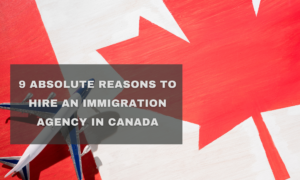Settlement in Saskatchewan – Things to Do As a Newcomer
Coming to a new country, learning the culture and settling into a new community can be daunting and slightly nerve-wracking. Those coming to settle in Saskatchewan as newcomers are often put to task if coming during winters and may initially seem lost. It’s best to know what to expect when you land because that will help create a smoother experience to settle in Saskatchewan.
Here is a guide we put together to help you transition into your new community in Saskatchewan. When you land in Canada, one of the first few people you will meet after your arrival in Canada will be a Canadian customs agent. You should be ready with all your landing certificates, passports, and visas. You’ll also meet other officials from immigration Services who may ask you to validate your arrival and show your passport and visa papers.
As you start your journey there are a few very important documents and papers that you will need handy for all your ongoing applications for banking, etc.
- Permanent Resident (PR) Card & Landing paper
- Social Insurance Number (SIN) card
- Health care card
- Driver’s license and or Government-issued photo ID
It’s very important that you start the process to obtain these documents as soon as you land as it may take several weeks/months to receive the cards after you apply.
Before you leave the airport, you should check out the newcomer welcome center. Toronto and Vancouver being the main airports, you’ll find their welcome kiosks at airports. At Toronto Pearson International Airport, look for the Immigrant Reception and Information Services (IRIS) kiosks. At Vancouver International Airport, go to Community Airport Newcomers Network (CANN) kiosk. These kiosks will have all the resources to help you in your first days in Canada. They will further share information on your onwards journey to Saskatchewan.
-
Accommodation
It’s always best to find temporary accommodation for your first few nights after landing and then start looking for a long-term rental in the city and the area you like as per your research. It’s good to do some research on where you want to live for the long term before committing to a lease. There are some big property companies like Mainstreet, Broadway, Remai, Elite Property Management, etc. and you should check the vacancy as soon as you start your home search.
-
Navigation and Direction
These days, almost every one of us carries our data-enabled smartphone. However, during your early days, you may not have access to mobile data plans and will need a good old paper map. Most of the local grocery and convenience stores will have an elaborate map of your city. You can also get the maps from the local library. It’s good to have a detailed street map pointing all local amenities, a telephone book, and the Yellow Pages. During your initial days, theses resources will be very important and helpful to do the research about the place and settling in.
-
Settlement Services
There are many settlement service agencies available in the cities and you must take some time to visit a local immigrant settlement agency. These agencies are usually non-profit organizations and receive government funding to offer newcomers services, such as free language training, settlement counseling, employment workshops, etc. They help newcomers to settle into the Canadian society and provide numerous free services including printing to help you adjust to life in Canada.
-
PR Card
Permanent resident identification or PR card, in short, is an identification and travel document. Wallet-sized, this card replaces your paper IMM 1000 Record of Landing document. It’s proof of your permanent resident status and you will need this card whenever you re-enter Canada and for other identification purposes.
-
SIN Card
It’s a 9-digit private and secure number that you’ll need to work in Canada. You should apply for your Social Insurance Number (SIN) card as soon as you land. If you don’t have a SIN card you cannot work or apply for any government assistance or credit. Applications for a SIN card can be made through the local Services Canada office.
-
Health Card
One of the other important things is health card which you should apply as soon as you start living in Saskatchewan. Application forms for these cards are available online on the e-health Saskatchewan website, doctor’s offices, hospitals, and most pharmacies, or by calling the provincial medical services authorities. It’s best to apply right after landing since there is an approx. three-month waiting period for coverage and you should not delay your application. It’s also good to have temporary private health coverage to cover your family during the waiting period.
-
Bank account
Check out local banks and their offers for new Canadians. Once you’ve researched and identified the best offer, set up a bank account and get a credit card. In Canada, you will need to start building your credit score for future financial needs such as mortgages or loans. It’s important to start a relationship with a bank so you can manage your money, pay your bills and begin building a credit history. Open an account at a bank or credit union near your home that is accessible and provides the best service to you.
-
Cell Phone
Communication is an important part of our living and you will need a cell phone plan to talk to your family and friends back home. Sign up for a Canadian cell phone, even just a pay-as-a-you-go plan so you will be accessible for potential employers and landlords. As with any other bills, paying your phone bills (if you have monthly contracts) is another way of building your credit score.
-
Driver License
An international license is only valid for a few months (the rules differ by province) so it’s better to get a Canadian driver’s license. If you are in cities with limited public transit facilities, you will need to have access to a car to drive from your place of work or to run any chores. Learn about the driving rules, practice your driving and take the exam as soon as you can.
-
School
One of the main reasons you and most immigrants come to Canada is a better future and it all starts with a good education. The Canadian education system guarantees an education to everyone, every child between the ages of five and 16 is required to attend school. Ask schools in your area or contact the local school board for guidance to register and enroll your kids at school.
For more information and how Greentech Resources can help you with jobs and recruitment, get in touch with our expert immigration consultant at our service locations in Saskatoon, Regina, Prince Albert, North Battleford and Moose Jaw.




Leave a comment